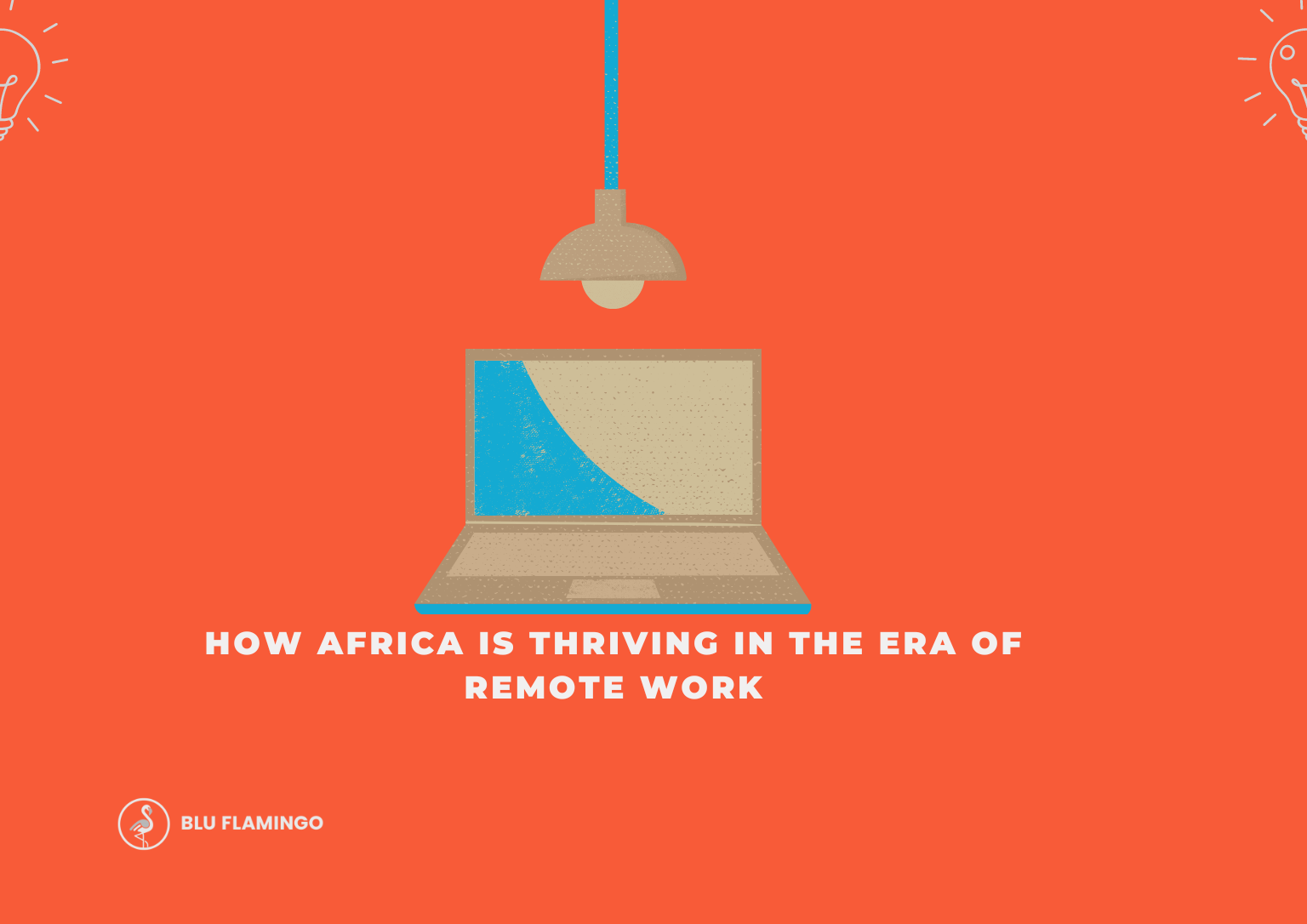Living in an interconnected world, the rise of remote and hybrid work models presents a unique opportunity for Africa to leapfrog traditional development stages and position itself as a global hub for talent and innovation. This article explores how various African countries are adapting to and benefiting from the remote work revolution, with specific examples from Kenya, Uganda, South Africa, Rwanda, and Nigeria.
- Bridging the Urban-Rural Divide
Remote work has the potential to democratize opportunities across Africa’s vast geography.
Kenya (KE): The Ajira Digital Program, launched by the Kenyan government, aims to bridge the gap between rural and urban employment opportunities. It provides digital skills training and connects youth to online work, allowing them to work remotely from anywhere in the country.
Uganda (UG): The Rural Communications Development Fund (RCDF) has been instrumental in extending internet connectivity to rural areas, enabling remote work opportunities in previously underserved regions.
Strategy: Governments should continue investing in rural broadband infrastructure and create incentives for companies to hire remote workers from underserved areas.
- Tapping into the Global Talent Market
The borderless nature of remote work opens up new avenues for African professionals to participate in the global economy.
Nigeria (NG): Nigerian developers and designers have gained prominence on global freelancing platforms like Upwork and Fiverr. Companies like Andela have also played a significant role in connecting Nigerian tech talent with international clients for remote work opportunities.
South Africa (SA): The country has seen a rise in digital nomad visas and remote work hubs, particularly in Cape Town, attracting both local and international remote workers to contribute to the local economy while working for global companies.
Strategy: Develop programs to enhance digital skills and English language proficiency, making African talent more competitive on the global stage.
- Fostering Innovation and Entrepreneurship
A remote-first mindset can catalyze innovation across the continent.
Rwanda (RW): The Kigali Innovation City project aims to create a tech hub that fosters both local and international remote-first startups. It provides state-of-the-art infrastructure and a supportive ecosystem for digital innovation.
Kenya (KE): The Nairobi Garage, a co-working space, has adapted to the remote work trend by offering virtual office services and flexible membership options, supporting the growth of remote-first startups in the country.
Strategy: Establish supportive legal frameworks for remote-first businesses and create virtual networking platforms for African entrepreneurs.
- Enhancing Work-Life Balance and Productivity
Flexible work arrangements can lead to significant quality of life improvements.
South Africa (SA): Companies like Vodacom have implemented permanent remote work policies, allowing employees to work from anywhere in the country. This has led to reported improvements in work-life balance and productivity.
Uganda (UG): The tech hub Outbox has been promoting remote work culture, offering training on productivity tools and time management for remote workers, helping Ugandan professionals adapt to this new way of working.
Strategy: Promote research on productivity in African remote work contexts and share best practices for maintaining work-life balance.
- Attracting Foreign Investment and Digital Nomads
Africa can position itself as an attractive destination for remote workers and digital nomads.
Rwanda (RW): The country has introduced a remote work visa, allowing foreign nationals to live and work remotely from Rwanda for up to one year. This initiative aims to attract skilled professionals and boost the local economy.
Nigeria (NG): Lagos has seen a growth in co-living and co-working spaces catering to both local remote workers and international digital nomads, fostering a vibrant community of global professionals.
Strategy: Develop special visa programs for digital nomads and create co-working spaces in tourist-friendly locations.
- Addressing Youth Unemployment
Remote work can be a powerful tool in tackling Africa’s youth unemployment challenge.
Kenya (KE): The Ajira Digital Program, mentioned earlier, has a specific focus on youth employment. It has trained over 100,000 young Kenyans in digital skills, enabling many to secure remote work opportunities.
South Africa (SA): The CapaCiTi Tech Career Accelerator program offers online courses and mentorship to young South Africans, preparing them for remote work opportunities in the tech industry.
Strategy: Partner with online learning platforms to offer targeted courses in high-demand remote work skills.
Conclusion
The shift towards remote and hybrid work models represents a transformative opportunity for Africa. Countries like Kenya, Uganda, South Africa, Rwanda, and Nigeria are already taking significant steps to adapt to and benefit from this new paradigm. By continuing to invest in digital infrastructure, skills development, and supportive policies, African nations can build more inclusive, innovative, and resilient economies.
As Africa steps into this new era, it has the chance not just to adapt to global trends, but to become a leader in defining the future of work. With strategic investments and forward-thinking policies, the continent can turn the challenges of the past into the strengths of the future, creating a prosperous and connected Africa that plays a central role in the global digital economy.


